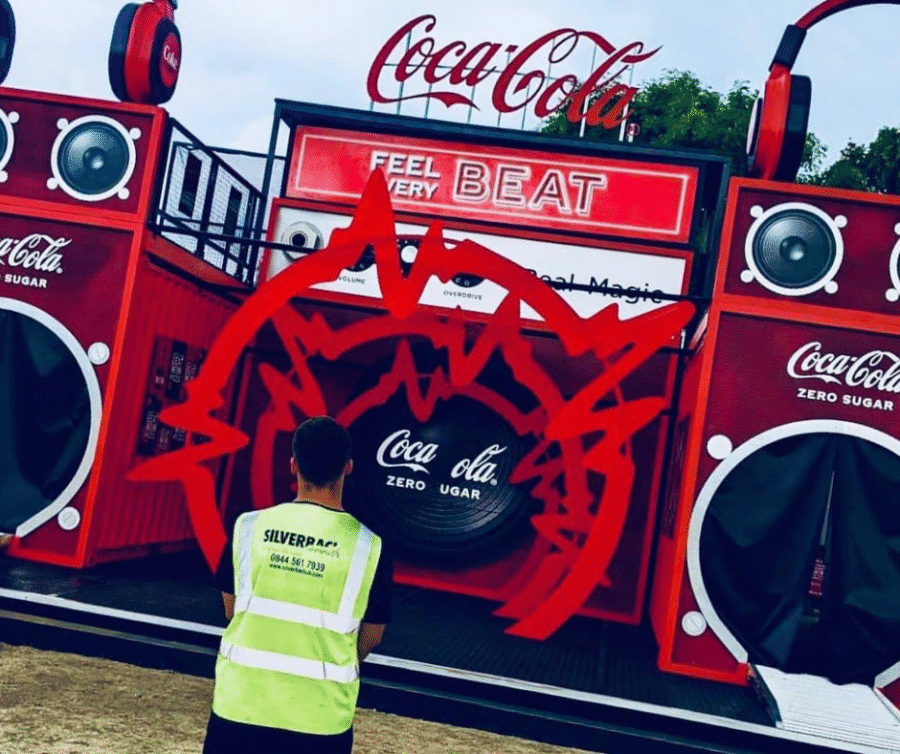In the modern music ecosystem, brand sponsorship has transcended traditional advertising to become an integral part of artist development, cultural innovation, and digital distribution. From energy drinks to streaming giants, a diverse range of companies are now among the most influential patrons of musical creativity. This article explores how leading brands have redefined music sponsorship, bridging commerce, technology, and cultural impact.
Red Bull: The Blueprint for Music-Driven Branding
Red Bull’s transformation from energy drink manufacturer to cultural powerhouse began in earnest with the launch of the Red Bull Music Academy (1998–2019). The Academy offered residencies, workshops, and festivals that became essential platforms for emerging talent, particularly in electronic and experimental music.
After closing the Academy in 2019, Red Bull shifted focus to its global network of Red Bull Music Studios, where artists can access state-of-the-art recording spaces for free. Through its label, Red Bull Records (home to AWOLNATION and Blxst), and events like Red Bull 3Style, the brand continues to support the intersection of youth culture and sound.
With regional hubs in Berlin, Los Angeles, Paris, and São Paulo, Red Bull has become a leading model for how commercial entities can authentically embed themselves in music communities.
Absolut: Visibility Through Inclusivity
Absolut Vodka, part of the Pernod Ricard group, positions itself as a progressive lifestyle brand that integrates music into its identity. Projects such as “United We Dance” and partnerships with EDM artists and LGBTQ+ performers reflect Absolut’s commitment to visibility for marginalized voices.
The brand sponsors high-profile stages at festivals like Tomorrowland and develops co-creation campaigns with artists including Rita Ora and Swedish House Mafia. Through immersive platforms like Absolut.Land, they’ve innovated virtual musical experiences.
Their reach extends across the U.S., Europe, and Southeast Asia—always with a focus on combining nightlife, identity, and celebration.
Coca-Cola and Coke Studio: A Global Sound Exchange
Coca-Cola’s commitment to music has taken many forms, but none more iconic than Coke Studio. Originating in Pakistan and expanding globally, Coke Studio fosters cross-cultural musical collaborations—bridging genres, generations, and geographies.
Artists like Queen, A.R. Rahman, and Karol G have participated in versions of the format. Beyond performance, Coke Studio supports song creation, documentary-style storytelling, and livestreams. It’s especially influential in South Asia, Africa, and Latin America, where it empowers regional artists to reach global audiences.
The Coca-Cola Foundation further supports cultural programs, making Coke Studio a rare example of corporate sponsorship with both artistic and philanthropic depth.
Apple Music: Curation as Catalyst
Apple Music has emerged as a digital tastemaker. Its flagship “Up Next” program highlights one emerging artist each month through exclusive content, editorial coverage, and performances—helping launch the careers of acts like Billie Eilish and Burna Boy.
The Apple Music Awards honor major achievements, while Apple Music Live features global concerts by chart-toppers. For classical musicians, Apple Music Classical promotes young ensembles through curated playlists and partnerships with major labels such as Deutsche Grammophon.
By offering curated visibility across over 160 countries, Apple plays a powerful role in shaping music consumption and discovery.
Spotify: Algorithm Meets Advocacy
Spotify doesn’t just stream music—it builds ecosystems around talent. Through initiatives like RADAR, EQUAL, and Fresh Finds, Spotify champions emerging artists, women, and underrepresented groups.
RADAR promotes regional talent through mentoring and playlisting; EQUAL provides monthly promotion for women in over 40 countries, including billboard campaigns; and Fresh Finds focuses on independent acts.
Despite its opaque algorithms, Spotify’s global footprint (180+ countries) and artist tools have made it a vital resource for self-releasing musicians seeking international traction.
YouTube: From Video Platform to Artist Incubator
YouTube’s artist support model revolves around visibility and infrastructure. YouTube Foundry offers artists promotional campaigns, video production, and live showcases. Notable alumni include Rosalía, Dua Lipa, and Arlo Parks.
Through its extensive music ecosystem—YouTube Music, Shorts, Live, and Foundry—YouTube supports artists with both audience access and monetization strategies. With programs tailored for the U.S., UK, Korea, and Brazil, YouTube ensures that its platform remains a primary driver of global music discovery.
Amazon Music: Full-Service Sponsorship
Amazon leverages its streaming platform, Alexa integration, and Twitch network to launch artists through programs like Breakthrough and Artists to Watch. Early beneficiaries include Olivia Dean and Remi Wolf.
Amazon Music Live offers high-profile concert broadcasts, while integrated merchandise and behind-the-scenes content create new revenue opportunities. The platform’s reach in the U.S., Germany, and India is growing, positioning it as a formidable player in digital-era music promotion.
TikTok: Viral by Design
TikTok revolutionized music discovery. Viral hits like Lil Nas X’s “Old Town Road” and GAYLE’s “abcdefu” owe their success to TikTok’s recommendation engine and participatory content model.
TikTok for Artists and SoundOn enable musicians to distribute directly to platforms like Spotify and Apple Music, while TikTok LIVE and Duet features promote engagement. With strongholds in the U.S., Asia, and Latin America, TikTok remains the most dynamic—and unpredictable—force in music promotion today.
Electronic Beats by Deutsche Telekom: A Cultural Institution
Since 2000, Deutsche Telekom’s Electronic Beats has curated one of Europe’s most respected brand-backed music initiatives. Focused on electronic music and media art, it provides club nights, video series, artist interviews, and workshops across cities like Berlin, Vienna, and Warsaw.
Artists like Nina Kraviz and Pantha du Prince have worked with the platform. Its multimedia infrastructure and authentic community engagement make it a staple of Europe’s music scene.
Music Forward Foundation: Empowering the Underserved
Launched by Live Nation, the Music Forward Foundation focuses on economic access and career development for underrepresented youth. It offers scholarships, industry mentorships, and touring opportunities.
Its “She Is The Music” initiative, partnerships with Berklee and Spotify, and TikTok-based events serve a wide range of participants. With hubs in Los Angeles, Nashville, and New York, the foundation emphasizes empowerment through education and access.
Bandcamp: The Independent’s Best Friend
Bandcamp’s artist-first model includes Bandcamp Fridays (no platform commission), curated editorial content, and a global platform for self-release and merchandise sales. Particularly vital for experimental and DIY artists, Bandcamp also supports global music through initiatives in Latin America, Africa, and Asia.
It’s a beacon for equitable music economies, rooted in transparency and independence.
Creative Europe and PRS Foundation: Public Power for Music
Government-funded initiatives like the EU’s Music Moves Europe and the UK’s PRS Foundation ensure institutional support for emerging talent. These programs provide grants, showcase opportunities, gender equity initiatives (e.g., Keychange), and export support.
Artists like Foals and Arlo Parks have benefited, demonstrating that public funding can have long-lasting impact—even in a commercialized industry.
A New Patronage for a New Era
Corporate and public sponsorships have become critical to sustaining diverse musical ecosystems. Whether through global livestreams, residencies, or mentorships, today’s artists rely on an intricate web of brand-driven and institutional support.
The most successful programs are those that balance commercial goals with authentic cultural engagement. In doing so, they not only elevate artists—they reshape the ways we experience, discover, and value music.









